
Pula: The Jewel of the Adriatic
Pula, nestled on the Istrian Peninsula of Croatia, is a city that marries ancient history with Mediterranean charm. This coastal gem is renowned for its well-preserved Roman amphitheater, the Pula Arena, which stands as a testament to the city's rich historical tapestry. Wander through the cobbled streets and you’ll find a blend of Roman, Venetian, and Austro-Hungarian influences, each adding a unique layer to Pula's cultural mosaic. The city's vibrant port and beautiful beaches beckon travelers to soak in the sun and enjoy the crystal-clear waters of the Adriatic Sea. For nature lovers, the nearby Brijuni National Park offers a stunning escape with lush landscapes and diverse wildlife. Pula's culinary scene is also a treat for the senses, with local delicacies such as truffles and fresh seafood providing a taste of the region's rich gastronomic heritage. Pula's lively festivals, including the famous Pula Film Festival held in the ancient amphitheater, bring an infectious energy to the city. Whether you're exploring historical sites, relaxing by the sea, or indulging in local flavors, Pula offers a captivating blend of experiences that make it a must-visit destination in Croatia.
Local tips in Pula
- Visit the Pula Arena early in the morning or late in the afternoon to avoid crowds and enjoy the best light for photos.
- Try the local Istrian truffles, a delicacy that you can find in many of Pula's restaurants.
- Take a day trip to Brijuni National Park for a mix of nature and historical exploration.
- Use public transportation or rent a bike to explore the city and its surroundings easily.
- Check the schedule for the Pula Film Festival if you're visiting in the summer; it's a unique experience to watch films in the ancient amphitheater.
Pula: The Jewel of the Adriatic
Pula, nestled on the Istrian Peninsula of Croatia, is a city that marries ancient history with Mediterranean charm. This coastal gem is renowned for its well-preserved Roman amphitheater, the Pula Arena, which stands as a testament to the city's rich historical tapestry. Wander through the cobbled streets and you’ll find a blend of Roman, Venetian, and Austro-Hungarian influences, each adding a unique layer to Pula's cultural mosaic. The city's vibrant port and beautiful beaches beckon travelers to soak in the sun and enjoy the crystal-clear waters of the Adriatic Sea. For nature lovers, the nearby Brijuni National Park offers a stunning escape with lush landscapes and diverse wildlife. Pula's culinary scene is also a treat for the senses, with local delicacies such as truffles and fresh seafood providing a taste of the region's rich gastronomic heritage. Pula's lively festivals, including the famous Pula Film Festival held in the ancient amphitheater, bring an infectious energy to the city. Whether you're exploring historical sites, relaxing by the sea, or indulging in local flavors, Pula offers a captivating blend of experiences that make it a must-visit destination in Croatia.
When is the best time to go to Pula?
Iconic landmarks you can’t miss
Pula Arena
Explore the Pula Arena, a stunning Roman amphitheater in Croatia that brings history to life with its impressive architecture and vibrant cultural events.
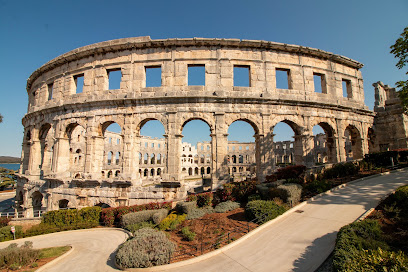
Arch of the Sergii
Discover Pula's ancient Roman heritage at the Arch of the Sergii, a magnificent triumphal arch and a gateway to the city's vibrant past.
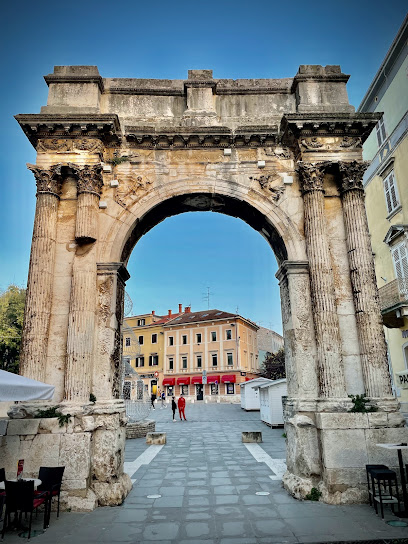
Brijuni National Park
Discover Brijuni National Park: Where history, nature, and exotic wildlife converge on a stunning Croatian archipelago.
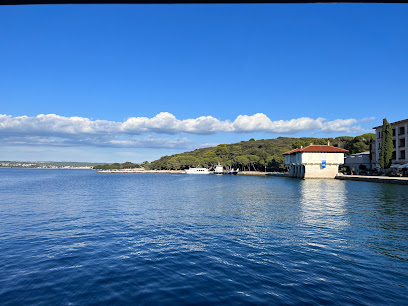
Temple of Augustus
Explore the Temple of Augustus in Pula: A remarkably preserved Roman monument showcasing ancient sculptures and the city's rich Roman history.
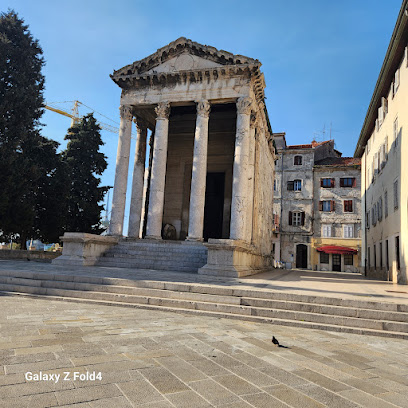
Aquarium Pula
Explore Aquarium Pula, where marine wonders come alive in a historic fortress setting, perfect for families and ocean enthusiasts alike.
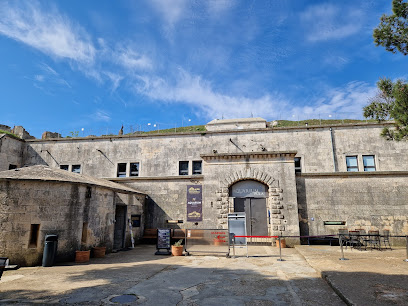
Forum Square
Explore Forum Square in Pula, a historical landmark showcasing ancient Roman architecture and vibrant local culture, perfect for tourists seeking rich heritage.
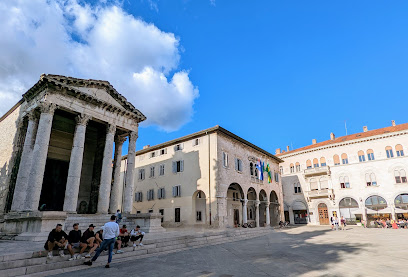
City Farmer's market Pula/Pola
Experience the vibrant heart of Pula at the City Farmer's Market, a sensory feast of local flavors, fresh produce, and Istrian culture.
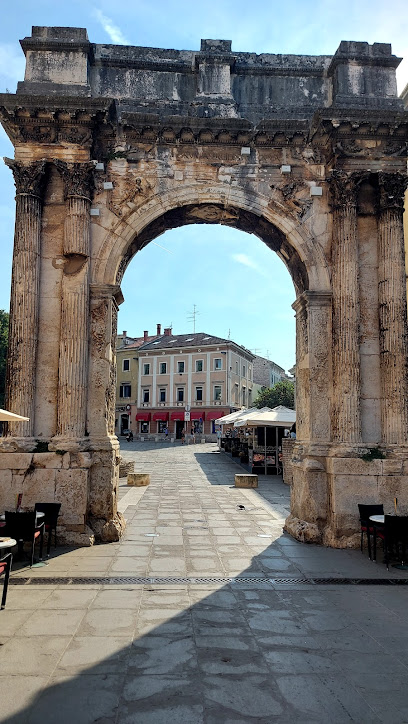
Pula Citadel
Explore Pula's iconic 17th-century Venetian fortress, offering panoramic views and a glimpse into the city's rich history.
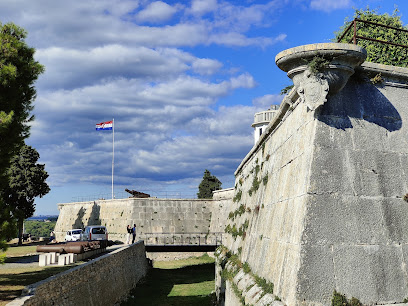
The Shipyard Pub
Experience Pula's maritime history at The Shipyard Pub, a unique themed venue with live music, great food, and a lively atmosphere.
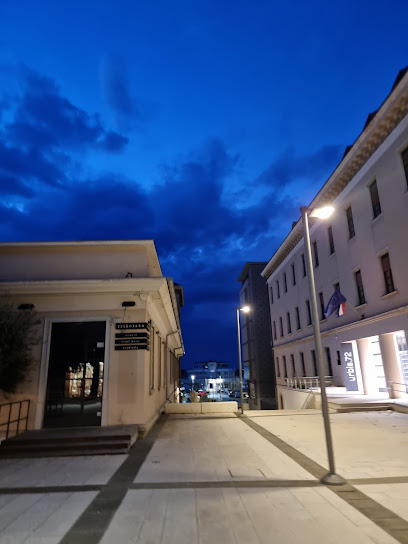
Old City Bar Pula
Experience Pula's vibrant nightlife at Old City Bar: a mix of local charm, refreshing drinks, and lively entertainment in a historic setting.
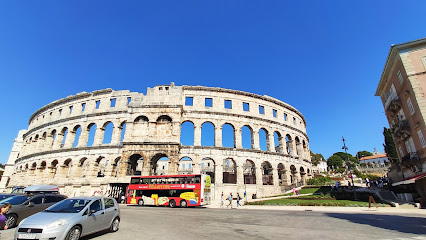
Fort Punta Christo
Discover the historical allure of Fort Punta Christo, a stunning fortress in Pula, Croatia, combining rich history with cultural vibrancy and breathtaking views.
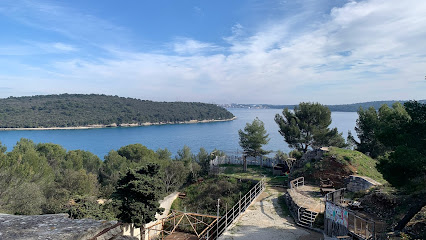
Historical and Maritime Museum of Istria
Explore Istria's captivating past within the walls of a historic Venetian fortress, offering panoramic views and rich collections.
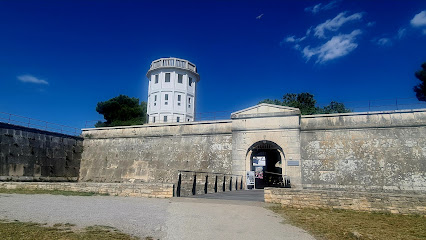
Verudela Canyon
Discover Verudela Canyon in Pula: a stunning blend of dramatic cliffs, azure waters, and rich history, perfect for adventure and relaxation.
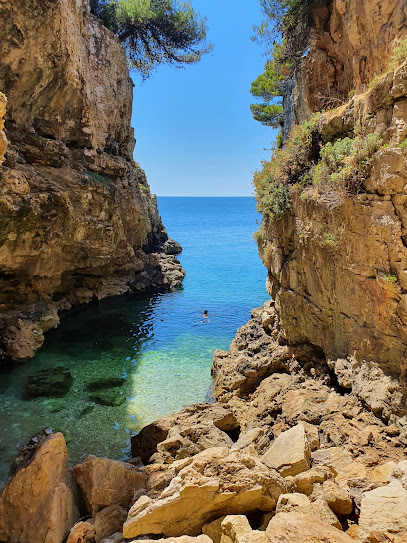
Gortan Cove
Discover the enchanting Gortan Cove, a beautiful public beach in Pula, perfect for sunbathing, swimming, and enjoying nature's tranquility.
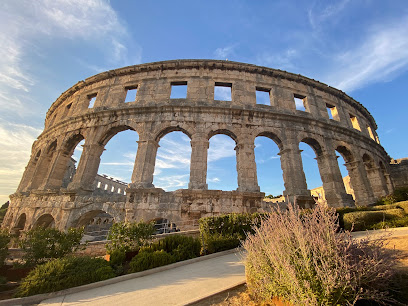
Aldo Drosina Stadium
Experience the passion of Croatian football at Aldo Drosina Stadium, a vibrant sports and cultural hub in the heart of Pula.
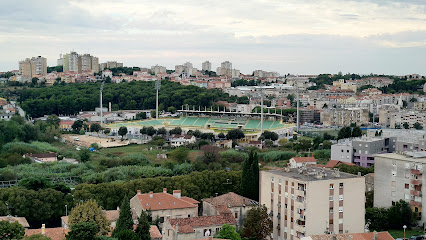
Unmissable attractions to see
Pula Arena
Explore the Pula Arena: A magnificent Roman amphitheater steeped in history and culture, offering breathtaking views and unforgettable events.
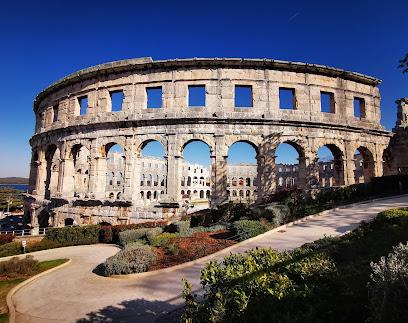
Brijuni National Park
Explore the breathtaking landscapes, rich history, and diverse wildlife of Brijuni National Park, an Istrian gem perfect for nature lovers and history enthusiasts.
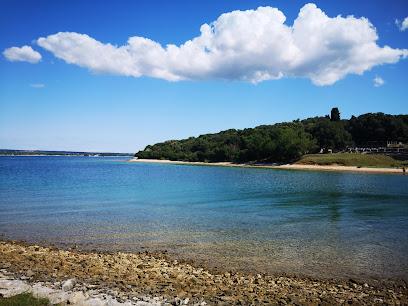
Aquarium Pula
Experience the magic of marine life at Aquarium Pula, a historic fortress showcasing the wonders of the Adriatic Sea's diverse ecosystems.
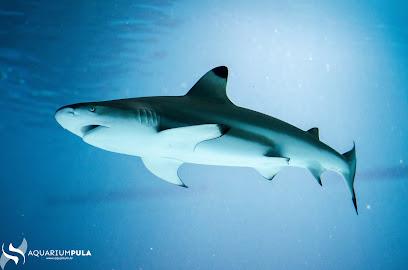
Temple of Augustus
Explore the ancient grandeur of the Temple of Augustus, a pivotal historical landmark in Pula, Croatia, showcasing the brilliance of Roman architecture.
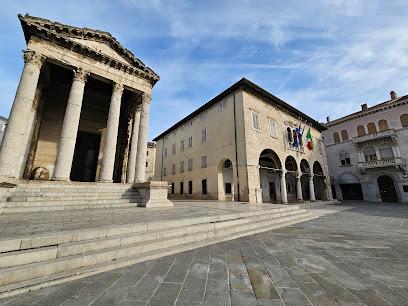
Jama - Grotta Baredine
Discover the stunning underground world of Jama - Grotta Baredine, a breathtaking cave system in Istria, Croatia, rich in natural beauty and geological wonders.
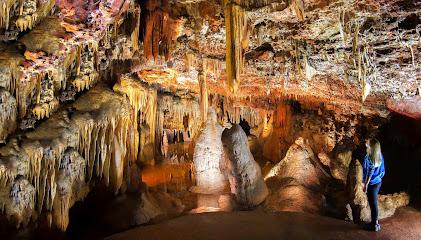
Church of St. Euphemia
Discover the breathtaking Church of St. Euphemia in Rovinj, a baroque gem offering stunning views and rich historical significance.
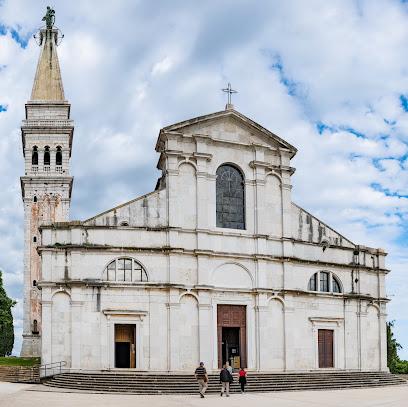
City Farmer's market Pula/Pola
Discover the heart of Pula at the City Farmer's Market, where fresh produce and local flavors come together in a vibrant community atmosphere.
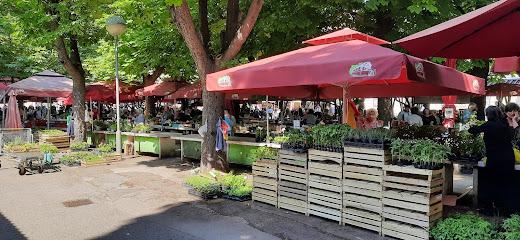
Pula Citadel
Discover the historical splendor and breathtaking views at Pula Citadel, a must-visit fortress in Croatia's stunning coastal city.
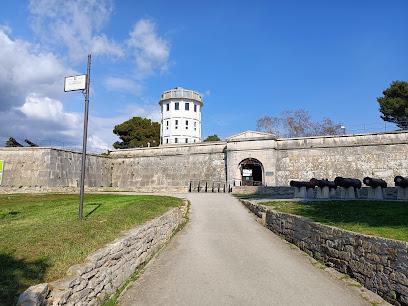
Euphrasian Basilica
Explore the architectural marvel of Euphrasian Basilica, a UNESCO World Heritage site in Poreč, showcasing stunning mosaics and rich Byzantine history.
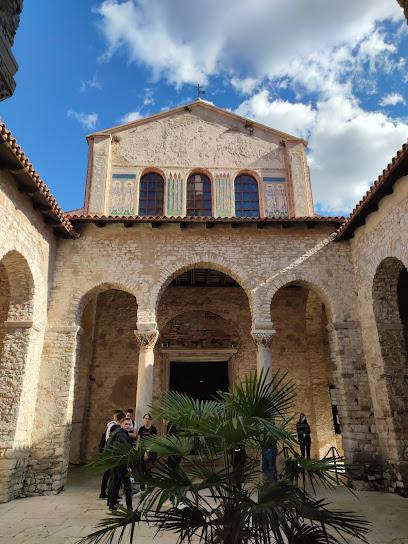
Dvigrad ruins
Discover the haunting beauty of Dvigrad ruins in Istria, Croatia – a fascinating historical landmark rich with stories and stunning views.
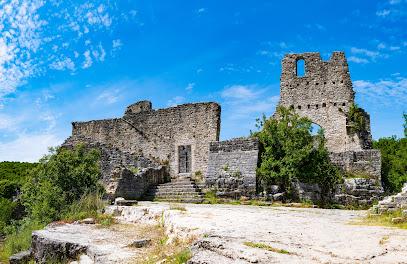
Beach Njive
Experience the enchanting beaches and natural beauty of Premantura, a Croatian paradise for nature lovers and sun seekers alike.
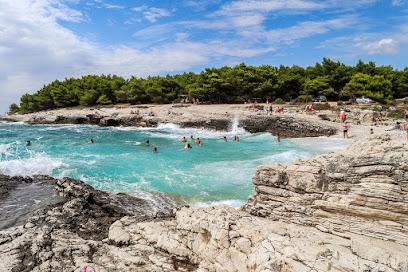
Fort Punta Christo
Explore Fort Punta Christo in Pula, Croatia – a historical fortress that blends stunning views with rich cultural experiences.
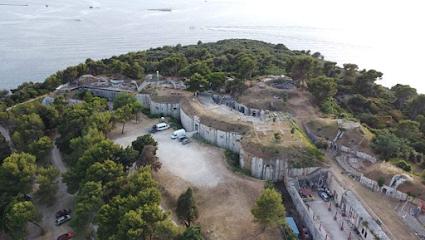
Historical and Maritime Museum of Istria
Explore the Historical and Maritime Museum of Istria in Pula, a captivating journey through the region's rich heritage and naval history.
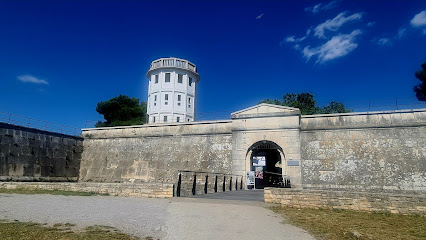
Plaža Ambrela
Experience the stunning beauty of Plaža Ambrela, a tranquil beach in Pula, Croatia, perfect for relaxation and water sports amidst scenic nature.
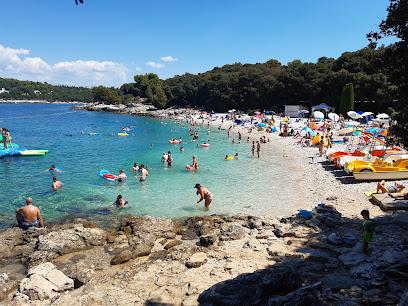
Kamenjak
Experience the stunning beauty of Kamenjak, a Croatian peninsula with pristine beaches, scenic trails, and vibrant marine life, perfect for adventure and relaxation.
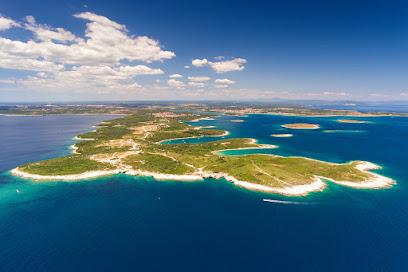
Essential places to dine
Veritas Food&Wine
Discover the best of Croatian cuisine at Veritas Food&Wine in Pula - where every meal is a celebration of flavor.
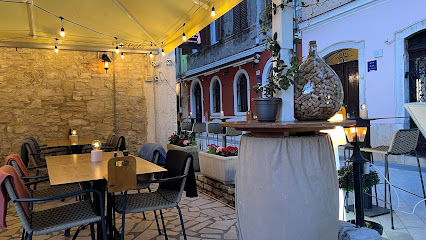
Konoba Boccaporta
Experience authentic Mediterranean flavors at Konoba Boccaporta in Pula, where every dish tells a story of tradition and culinary excellence.
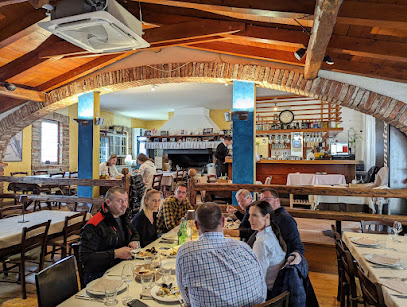
Bistro Alighieri
Experience authentic Croatian cuisine at Bistro Alighieri in Pula, where tradition meets modern culinary artistry in a cozy setting.
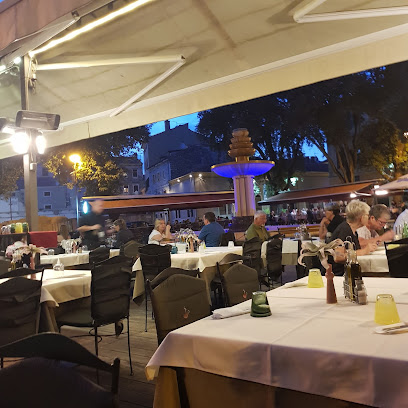
El Pulari
Discover authentic Mexican cuisine at El Pulari in Pula – where vibrant flavors meet warm hospitality.
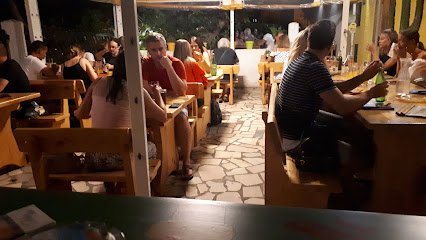
Kod Kadre
Experience authentic Croatian barbecue at Kod Kadre in Pula – where flavor meets tradition in every bite.
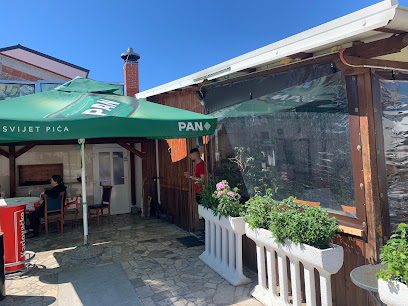
Hook & Cook Pula
Discover culinary delights at Hook & Cook Pula – where fresh seafood meets innovative flavors in a vibrant coastal atmosphere.
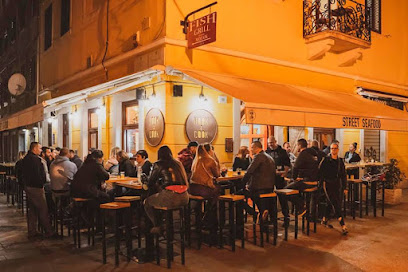
Orfej
Discover authentic Croatian cuisine at Orfej in Pula - where flavor meets affordability in a cozy setting.
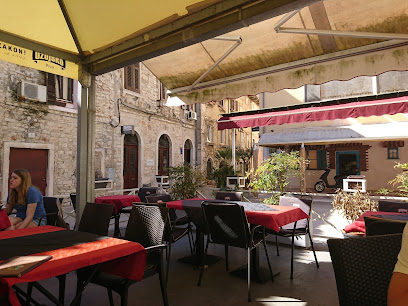
Bonaca Restaurant & Lounge Bar
Discover exquisite flavors at Bonaca Restaurant & Lounge Bar in Pula - where stunning views meet exceptional cuisine.
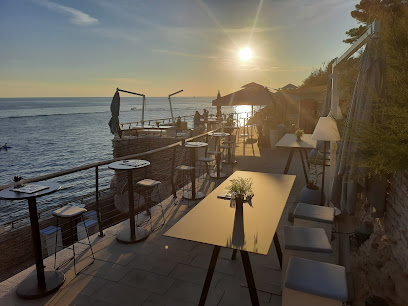
Kantina Restaurant
Experience the culinary delights of Croatia at Kantina Restaurant in Pula – where local flavors meet Mediterranean charm.
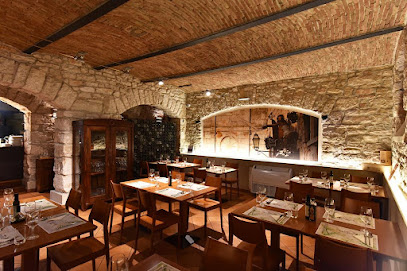
Rustic Gourmet Veruda
Experience exquisite Mediterranean cuisine in Pula at Rustic Gourmet Veruda – where every dish tells a story.
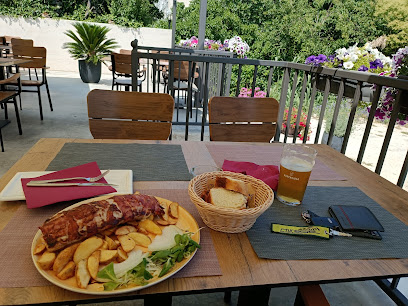
Restaurant da Piero II
Experience authentic Croatian cuisine at Restaurant da Piero II in Pula - where every dish tells a story.
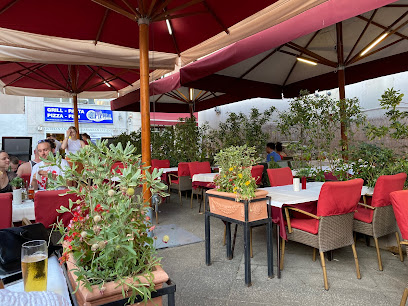
Rendez-vous
Experience the essence of Croatian cuisine at Rendez-vous in Pula—where local flavors meet warm hospitality.
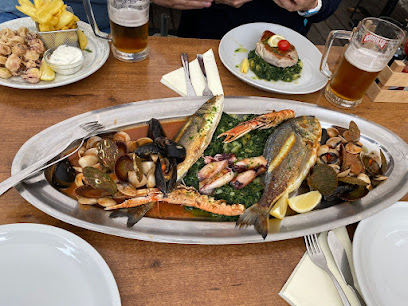
Farabuto
Discover exquisite seafood dishes at Farabuto, Pula's premier fine dining fish restaurant featuring fresh local ingredients and exceptional service.
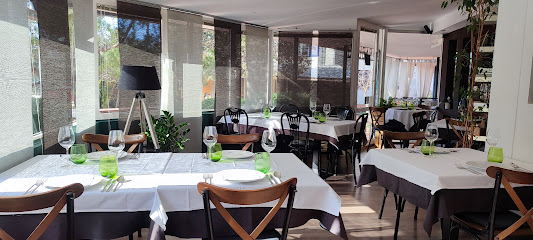
Restaurant Osteria Gardelin
Experience Mediterranean culinary excellence at Restaurant Osteria Gardelin in Pula, where tradition meets modern dining in an inviting atmosphere.
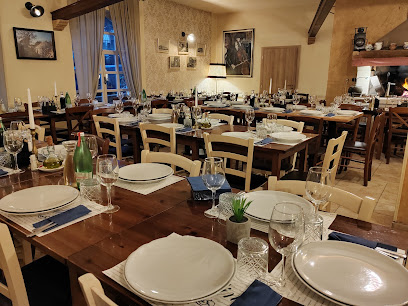
Restoran & lounge bar Meating
Discover culinary excellence at Restoran & Lounge Bar Meating in Pula - where gourmet meats meet stunning seafood.
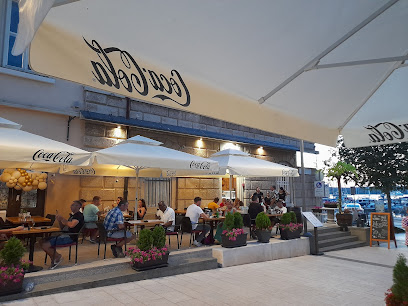
Markets, malls and hidden boutiques
Pula City Mall
Discover Pula City Mall, a vibrant shopping haven where local charm meets global brands in the heart of Croatia's beautiful Pula.
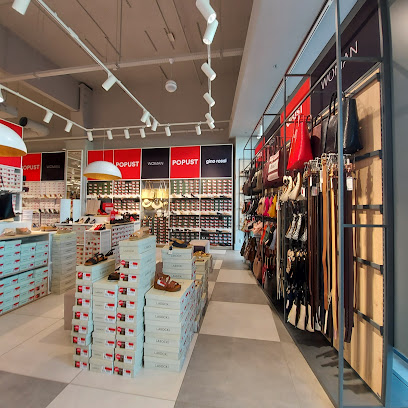
Max City
Explore the largest shopping mall in Istria with diverse stores, delicious dining, and entertainment for all ages at Max City in Pula.
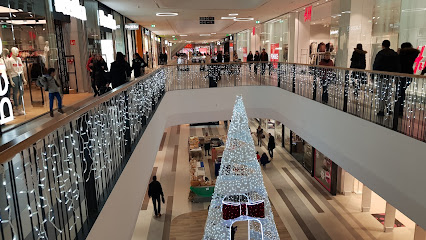
Kcentar Šijana
Discover Kcentar Šijana, Pula's vibrant shopping mall offering an array of shops, dining, and local culture in a modern setting.
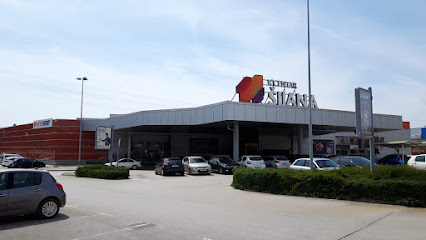
Müller
Discover Müller in Pula: A versatile drug store offering health essentials, perfumes, and more for all your travel needs.
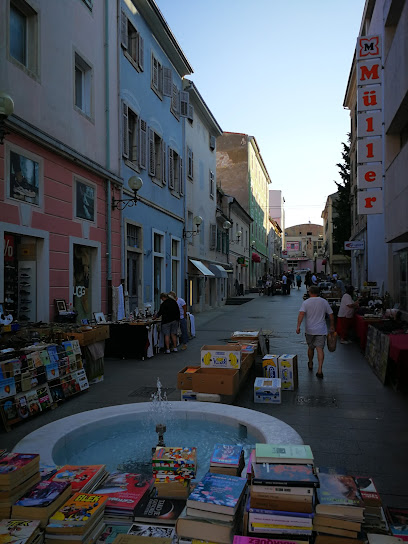
Jam Jam
Discover the ultimate shopping paradise at Jam Jam in Pula, featuring a diverse range of stores and a vibrant atmosphere for all visitors.
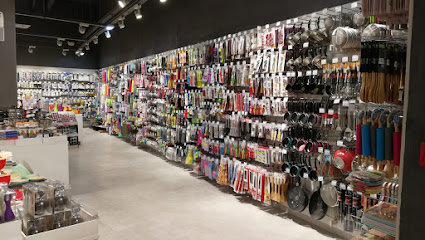
Office Shoes Pula
Explore stylish and comfortable footwear at Office Shoes Pula, your premier shoe store in the heart of this historic coastal city.
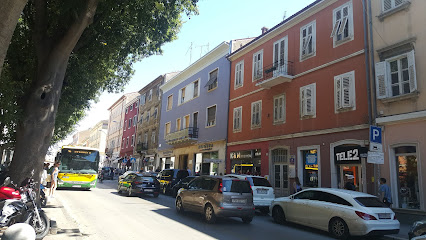
TORBICA
Explore Torbica in Pula for exquisite fashion accessories that enhance your style and celebrate Croatian craftsmanship.
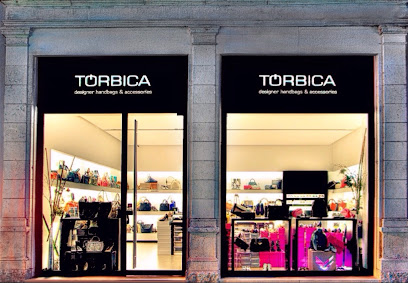
Max Mara
Explore Max Mara in Pula for exquisite women's clothing and stylish fashion accessories that redefine elegance and sophistication.
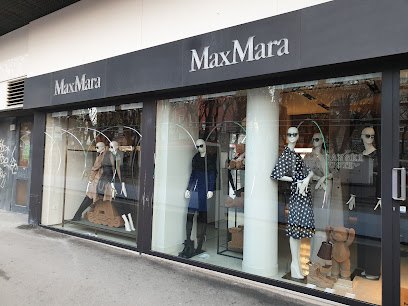
Lisca
Explore the trendy and stylish clothing store Lisca in Pula, where fashion meets the vibrant spirit of Croatia.

Aura Distillery Shop
Experience the essence of Croatia at Aura Distillery Shop, home to exquisite local spirits and a celebration of traditional distillation.
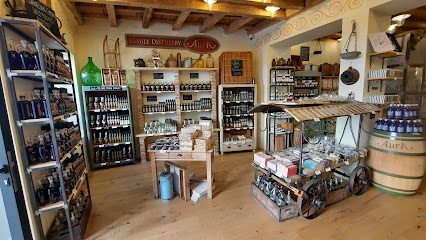
P....S....fashion Pula
Discover the latest trends in women's fashion at Pula's chic clothing store, where style meets quality in a vibrant shopping atmosphere.
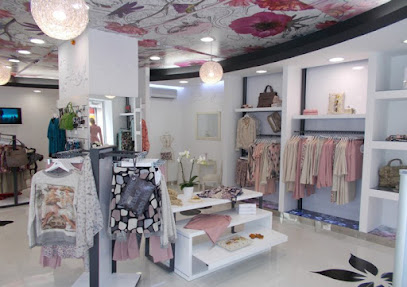
Gulliver production store
Explore the unique craftsmanship and vibrant atmosphere of Gulliver Production Store in Pula, a perfect shopping destination for tourists.
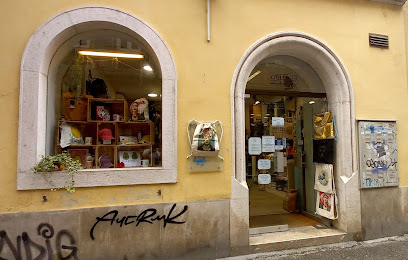
Nature Croatia
Explore Nature Croatia in Pula, a souvenir store showcasing authentic local crafts and unique gifts to remember your adventure.
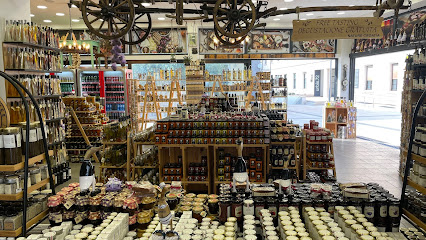
Ethno Shop
Explore Ethno Shop in Pula for authentic Croatian crafts and unique souvenirs reflecting the rich culture and artistry of the region.
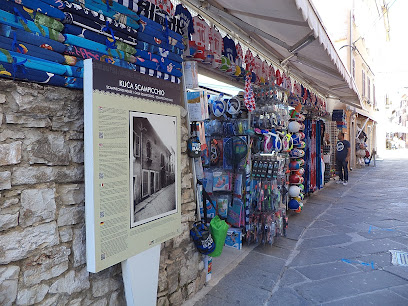
Deachrie - Croatian design concept store
Explore Deachrie, Pula's premier Croatian design concept store, offering unique clothing and accessories that celebrate local craftsmanship.
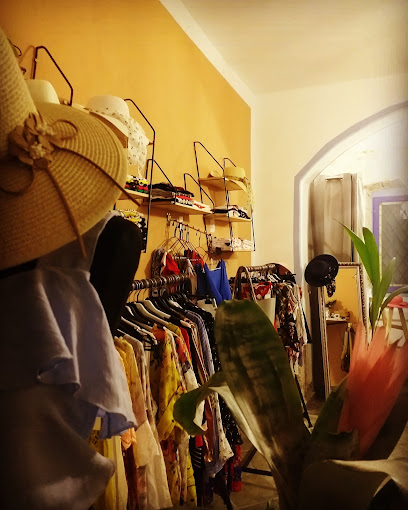
Essential bars & hidden hideouts
The Shipyard Pub
Discover the heart of Pula at The Shipyard Pub, where local flavors and a cozy atmosphere await you in this charming café-pub hybrid.
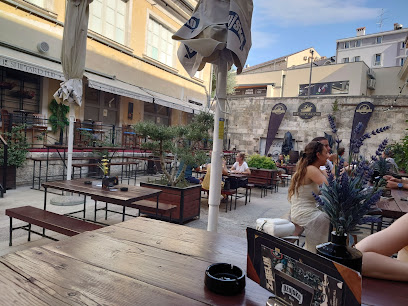
Zeppelin - Beach & lounge bar
Experience the vibrant atmosphere and stunning coastal views at Zeppelin Beach & Lounge Bar, a must-visit destination in Pula, Croatia.
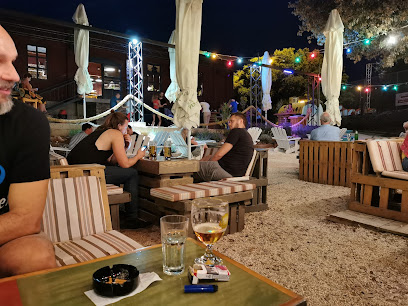
Old City Bar Pula
Discover the heart of Pula at Old City Bar, where lively vibes meet a diverse drink selection in a charming setting.
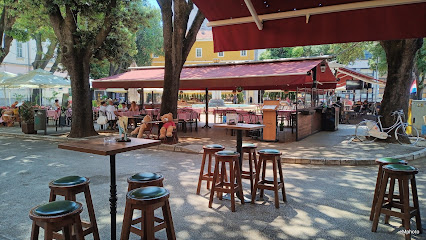
Pomidor Bar
Discover the vibrant Pomidor Bar in Pula, a perfect blend of grill delights and innovative cocktails in a lively atmosphere.
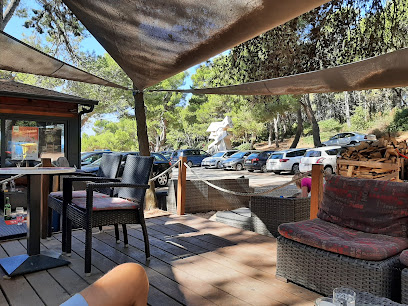
Cabahia
Discover the lively nightlife of Pula at Cabahia, a vibrant bar offering a great selection of drinks and a welcoming atmosphere for all visitors.
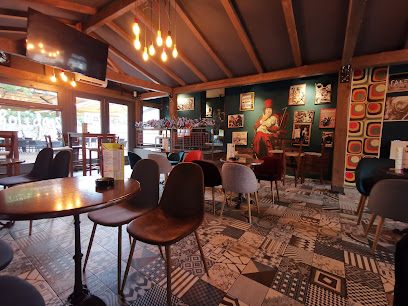
Rock Bar Mimoza
Experience the vibrant nightlife at Rock Bar Mimoza in Pula, featuring delicious cocktails and stunning views in a lively atmosphere.
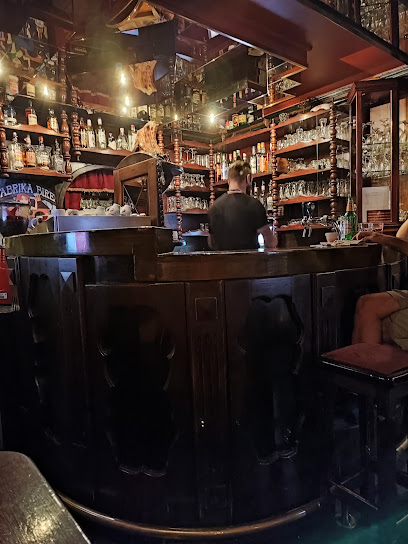
Ulysses
Explore Ulysses in Pula for a delightful blend of local wines, craft beers, and a vibrant atmosphere perfect for socializing.
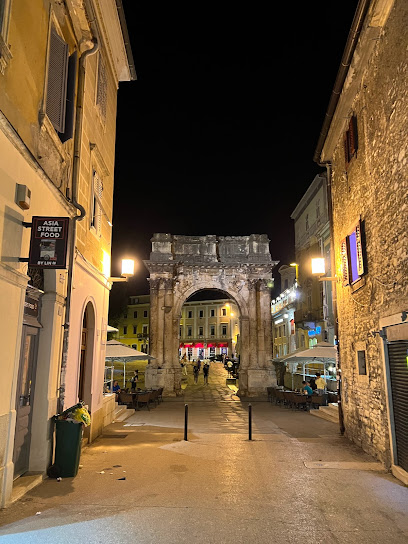
Bass bar Pula
Experience the lively ambiance and delightful drinks at Bass Bar Pula, where locals and tourists come together to unwind in style.
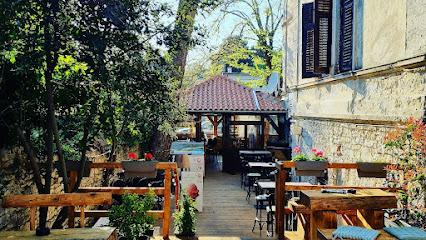
Bounty
Experience the vibrant atmosphere at Bounty in Pula, where delicious drinks and local culture come together for an unforgettable night out.
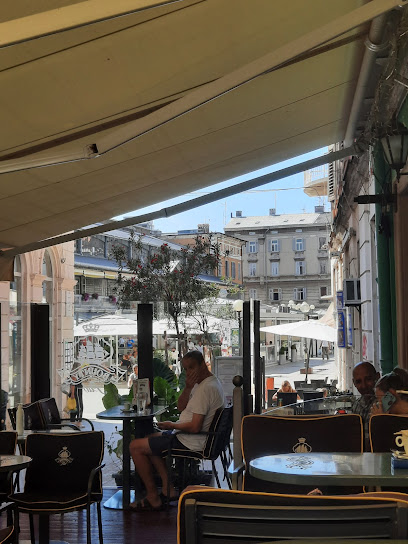
Baboo Cocktail bar
Experience the lively atmosphere and signature cocktails at Baboo Cocktail Bar in Pula, the perfect spot for nightlife enthusiasts.
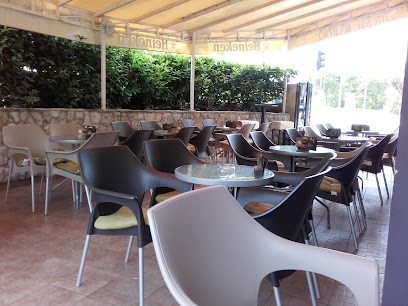
Pietas Julia
Experience the vibrant blend of culinary excellence and nightlife at Pietas Julia in Pula, where every meal and night out is unforgettable.
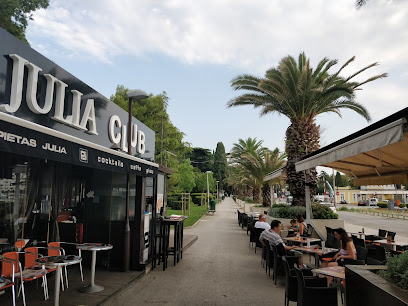
Bolero
Discover Bolero in Pula: A lively bar offering a vibrant atmosphere, diverse drink menu, and a perfect spot to soak in the city's nightlife.
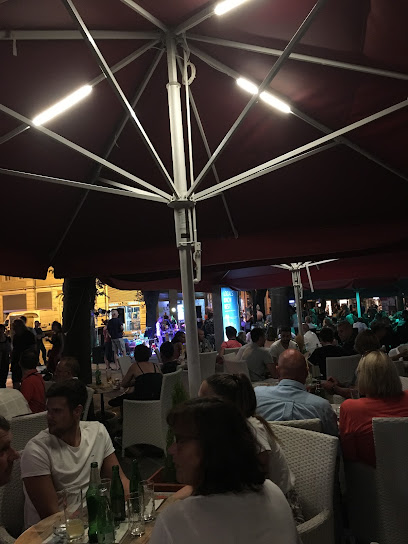
Caffe&Coctail bar Actors Studio
Discover the vibrant atmosphere and exquisite drinks at Caffe & Cocktail Bar Actors Studio in Pula, where every sip is a celebration of flavor.
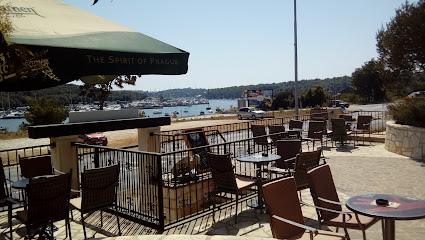
Boca Wine Bar
Experience the best of Croatian wines and delectable tapas at Boca Wine Bar, a cozy gem in the heart of Pula, perfect for wine lovers.
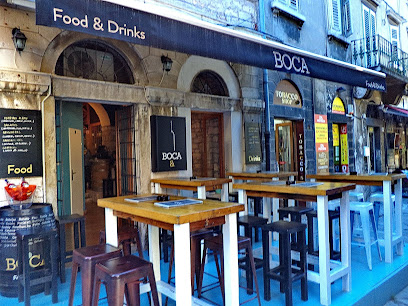
Beach Bar Valkane
Discover the vibrant atmosphere and stunning views of Beach Bar Valkane, a coastal gem in Pula perfect for relaxation and refreshments.
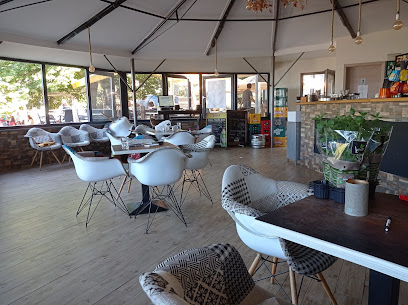
Local Phrases
-
- HelloBok
[Bohk] - GoodbyeDoviđenja
[Doh-vee-jen-ya] - YesDa
[Dah] - NoNe
[Neh] - Please/You're welcomeMolim
[Moh-leem] - Thank youHvala
[Hvah-lah] - Excuse me/SorryOprosti
[O-pros-tee] - How are you?Kako si?
[Kah-koh see?] - Fine. And you?Dobro. A ti?
[Doh-bro. Ah tee?] - Do you speak English?Govoriš li engleski?
[Go-vo-reesh lee eng-les-kee?] - I don't understandNe razumijem
[Neh rah-zoo-mee-yem]
- HelloBok
-
- I'd like to see the menu, pleaseMolio bih meni, molim
[Moh-lee-oh bee meh-nee, moh-leem] - I don't eat meatNe jedem meso
[Neh yeh-dem meh-so] - Cheers!Živjeli!
[Zhee-vyeh-lee] - I would like to pay, pleaseŽelio bih platiti, molim
[Zheh-lee-oh bee pla-tee-tee, moh-leem]
- I'd like to see the menu, pleaseMolio bih meni, molim
-
- Help!Pomoć!
[Poh-mohch!] - Go away!Idi odavde!
[Ee-dee oh-dahv-deh!] - Call the Police!Pozovi policiju!
[Poh-zoh-vee po-lee-tsee-yoo!] - Call a doctor!Pozovi doktora!
[Poh-zoh-vee dohk-toh-rah!] - I'm lostIzgubio/la sam se
[Eez-goo-byo/lah sahm seh] - I'm illBolesno mi je
[Boh-les-noh mee yeh]
- Help!Pomoć!
-
- I'd like to buy...Želim kupiti...
[Zheh-leem koo-pee-tee] - I'm just lookingSamo gledam
[Sah-moh gleh-dahm] - How much is it?Koliko košta?
[Koh-lee-koh koh-shta?] - That's too expensiveTo je previše skupo
[Toh yeh preh-vee-sheh skoo-poh] - Can you lower the price?Možete li spustiti cijenu?
[Moh-zheh-teh lee spoos-tee-tee tsee-yeh-noo?]
- I'd like to buy...Želim kupiti...
-
- What time is it?Koliko je sati?
[Koh-lee-koh yeh sah-tee?] - It's one o'clockJedan je sat
[Yeh-dahn yeh saht] - Half past (10)Pola (deset)
[Poh-lah (deh-set)] - MorningJutro
[Yoo-troh] - AfternoonPopodne
[Poh-pohd-neh] - EveningVečer
[Veh-chehr] - YesterdayJučer
[Yoo-cher] - TodayDanas
[Dah-nahs] - TomorrowSutra
[Soo-trah] - 1Jedan
[Yeh-dahn] - 2Dva
[Dvah] - 3Tri
[Tree] - 4Četiri
[Cheh-tee-ree] - 5Pet
[Peh-t] - 6Šest
[Shehst] - 7Sedam
[Seh-dahm] - 8Osam
[Oh-sahm] - 9Devet
[Deh-vet] - 10Deset
[Deh-set]
- What time is it?Koliko je sati?
-
- Where's a/the...?Gdje je...
[Gdyeh yeh...] - What's the address?Koja je adresa?
[Koh-yah yeh ah-dreh-sah?] - Can you show me (on the map)?Možete li mi pokazati (na karti)?
[Moh-zheh-teh lee mee poh-kah-zah-tee (nah kahr-tee)?] - When's the next (bus)?Kada je sljedeći (autobus)?
[Kah-dah yeh sleh-deh-chee (ow-toh-boos)?] - A ticket (to ....)Jednu kartu (do ...)
[Yeh-dnoo kar-too (doh ...)]
- Where's a/the...?Gdje je...
History of Pula
-
The city of Pula, located on the southern tip of the Istrian Peninsula, has been inhabited since prehistoric times. Archaeological evidence suggests that the area was first settled by the Histri tribe, an Illyrian people, around the 10th century BC. The strategic location of Pula made it an attractive site for various civilizations that followed.
-
Pula flourished under Roman rule, beginning in 177 BC when it became a Roman colony. The city was known as Pietas Julia and was an important center for trade and military presence. The Romans left a lasting legacy in Pula, including the magnificent Pula Arena, one of the best-preserved Roman amphitheaters in the world. Other notable Roman structures include the Temple of Augustus and the Arch of the Sergii.
-
Following the decline of the Roman Empire, Pula became part of the Byzantine Empire in the 6th century. During this period, the city experienced a series of invasions by the Ostrogoths and Lombards. Despite these challenges, Pula managed to retain its importance as a strategic and commercial hub.
-
From the 13th century until the late 18th century, Pula was under the control of the Venetian Republic. This period was marked by economic growth as the city became an important maritime center. The Venetian influence is still evident in Pula's architecture, including the city walls and fortifications built to protect it from Ottoman incursions.
-
In 1797, Pula became part of the Habsburg Monarchy following the Treaty of Campo Formio. Under Habsburg rule, the city underwent significant modernization and development. The Austro-Hungarian Navy established its main naval base in Pula, leading to the construction of shipyards, docks, and other military facilities that contributed to the city's growth.
-
Pula experienced turbulent times during the 20th century, including occupation by Italian forces after World War I. The city was heavily militarized and saw significant changes in its demographic and cultural landscape. During World War II, Pula was heavily bombed, resulting in substantial damage to its infrastructure.
-
After World War II, Pula became part of Yugoslavia and underwent a period of reconstruction and development. The city's economy diversified, and it became a center for shipbuilding and tourism. The cultural heritage of Pula was preserved and promoted, attracting visitors from around the world.
-
Today, Pula is a vibrant city that blends its rich historical past with modern amenities. It is known for its cultural festivals, such as the Pula Film Festival held in the Roman amphitheater. Pula's historical sites, beautiful coastline, and lively cultural scene make it a popular destination for tourists seeking a unique and immersive experience.
Pula Essentials
-
Pula is accessible via several means of transportation. The nearest airport is Pula Airport (PUY), located about 6 kilometers from the city center. There are direct flights from various European cities, especially during the summer season. For those traveling by land, Pula is well-connected by bus and train services from cities across Croatia and neighboring countries. You can also reach Pula by car via the A9 highway if you are traveling from within Croatia or Slovenia.
-
Once in Pula, getting around is relatively easy. The city has an efficient public bus system operated by Pulapromet, covering the major attractions and neighborhoods. Taxis are available but can be more expensive, so it's advisable to use them for short trips. Renting a bicycle or scooter is another popular option, especially during the summer months when the weather is pleasant. For those looking to explore nearby regions, car rentals are available at several locations within the city.
-
The official currency in Croatia is the Croatian Kuna (HRK). Credit and debit cards are widely accepted in Pula, including in most hotels, restaurants, and shops. However, it's advisable to carry some cash for smaller establishments, street vendors, and markets. ATMs are plentiful and can be found throughout the city, including at the airport and major tourist areas.
-
Pula is generally a safe destination for tourists. However, it's essential to take standard precautions. Avoid carrying large sums of money and keep your valuables secure. Be cautious in crowded areas such as markets and tourist hotspots where pickpocketing can occur. The neighborhoods around the city center are generally safe, but it's best to avoid poorly lit areas at night.
-
In case of emergency, dial 112 for immediate assistance, which is the general emergency number in Croatia. The local police station is located in the city center, and there are several medical facilities, including the Pula General Hospital, for any medical emergencies. Pharmacies are also readily available for minor health issues, and most pharmacists speak English.
-
Fashion: Do dress comfortably and casually, but avoid beachwear in the city center. When visiting religious sites, opt for modest clothing. Religion: Do respect local customs and traditions, especially when visiting churches. Cover your shoulders and knees when entering religious sites. Public Transport: Do validate your bus ticket when boarding. Don't eat or drink on public transport as it is considered disrespectful. Greetings: Do greet locals with a friendly 'Dobar dan' (Good day) and a handshake. Eating & Drinking: Do try local dishes like Istrian pasta and seafood. Don't leave a large tip; rounding up the bill or leaving a small tip is customary.
-
To experience Pula like a local, visit the Pula Market (Pulska Tržnica) for fresh produce and local delicacies. Engage with the locals, as they are usually friendly and eager to share stories about their city. Don’t miss exploring the Pula Arena, one of the best-preserved Roman amphitheaters. For a unique experience, take a stroll along the Lungomare coastal promenade or enjoy a day trip to the nearby Brijuni Islands.
Trending Landmark in Pula
Nearby Cities to Pula
-
Things To Do in Rovinj
-
Things To Do in Opatija
-
Things To Do in Portorož
-
Things To Do in Izola
-
Things To Do in Koper
-
Things To Do in Piran
-
Things To Do in Trieste
-
Things To Do in Sežana
-
Things To Do in Postojna
-
Things To Do in Nova Gorica
-
Things To Do in Rimini
-
Things To Do in Venice
-
Things To Do in Zadar
-
Things To Do in Ravenna
-
Things To Do in Ljubljana













